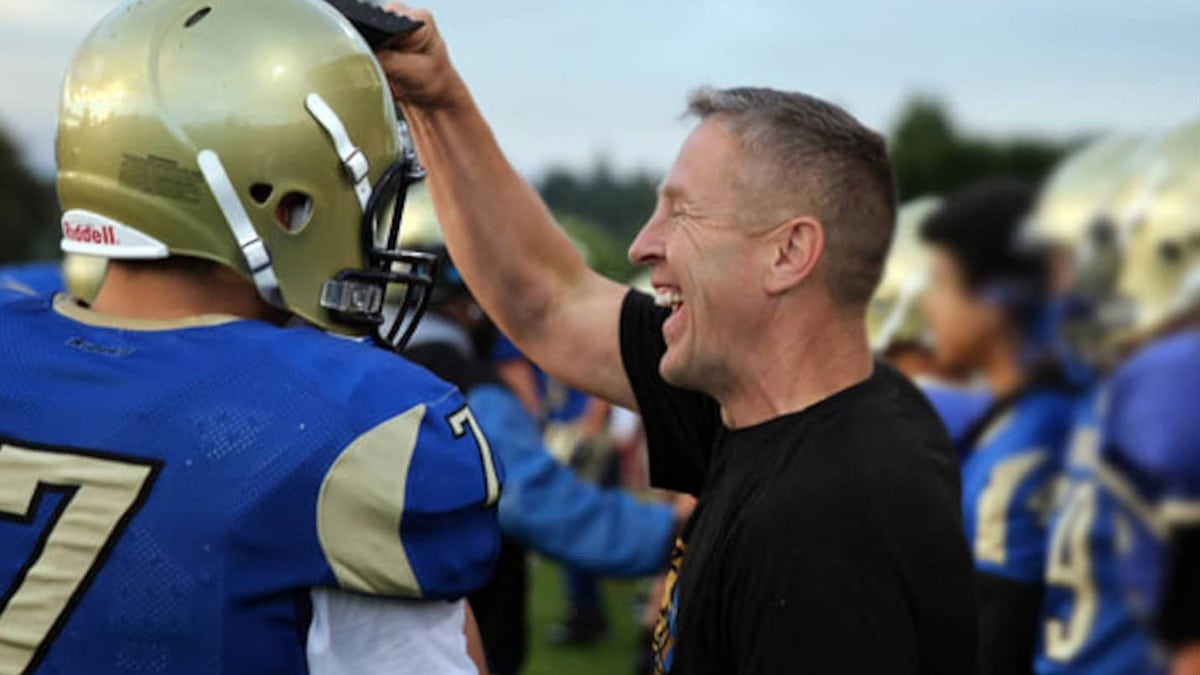'Supreme Court wants a theocracy': 'The View' hosts slam SCOTUS decision on praying football coach
"The View" hosts criticized the Supreme Court's decision to rule in favor of the the high school football coach that was fired for praying at the 50-yard line after games.
On Tuesday, the hosts of ABC's "The View" slammed the Supreme Court for ruling in favor of a high school football coach praying on the field, arguing that the high court "wants a theocracy right now."
"A lot of Americans kind of disagree with that interpretation of the First Amendment and say the decision basically erases the line between church and state, and really, you know, we had some questions earlier, would the same be given to if it was a Muslim coach, would he have the same rights? Would we be questioning it? What about a Wiccan? What if Wiccans decided to pray? Does this apply really to everyone?" co-host Whoopi Goldberg asked.
Co-host Joy Behar argued that former NFL player Colin Kaepernick, who famously took a knee to protest the police during the national anthem in the 2016 season, could have been praying while he was taking a knee. "He could be praying. How do they know what you're doing when you take a knee, doesn't that look like prayer to you? Suddenly its illegal for him but it's OK for this group, because the Supreme Court wants a theocracy right now, they don't know the difference between church and state anymore in this country," she said.

"The View" host Joy Behar says the Supreme Court "wants a theocracy" right now. (Screenshot/ABC/TheView)
CONSERVATIVE SCOTUS JUSTICES OFFER TACIT SUPPORT FOR FOOTBALL COACH's ON-FIELD PRAYER
The Supreme Court ruled in favor of Joe Kennedy, who lost his job as a high school football coach because he was reciting prayer at the 50-yard line after games. "Here, a government entity sought to punish an individual for engaging in a brief, quiet, personal religious observance doubly protected by the free exercise and free speech clauses of the First Amendment. And the only meaningful justification the government offered for its reprisal rested on a mistaken view that it had a duty to ferret out and suppress," Justice Neil Gorsuch wrote in the opinion.
Sunny Hostin noted that Kaepernick was protesting "police brutality" by taking a knee and Behar said he could have been "praying for justice."
Hostin said she was concerned by the court because "now there is no separation between church and state" and argued that members of the team with various different religious beliefs would feel the need to "pray to his God."

Joe Kennedy, who coached high school football in Bremerton, Washington, with his players on the field (First Liberty Institute)
WASHINGTON FOOTBALL COACH WOULD RETURN TO FIELD ‘IN A HEARTBEAT’ IF HE WINS SCOTUS PRAYER CASE
Sara Haines said her problem with it was that it "feels performative."
"The problem is you’re on the center field, it was not brief and it was audible. He would pray outwardly. If you’re the leader of the team and I was an athlete, I would feel and this is what Sunny and I were discussing, that you’re looking for game time, playing time, you’re looking to be favored, some people are competing to be the captain of the team, it’s not lost on anyone that when someone in authority is doing something and saying ‘come one and all,' that you wouldn’t feel a pressure from a public school employee," Haines said.

"The View" hosts slammed the Supreme Court's decision favoring the high school football coach who was fired for praying after games. (Screenshot/ABC/TheView)
CLICK HERE TO GET THE FOX NEWS APP
Justice Sonia Sotomayor accused the conservative justices of "disregarding" separation of church and state in her dissenting opinion.
"Official-led prayer strikes at the core of our constitutional protections for the religious liberty of students and their parents, as embodied in both the Establishment Clause and the Free Exercise Clause of the First Amendment," Sotomayor wrote. "The Court now charts a different path, yet again paying almost exclusive attention to the Free Exercise Clause’s protection for individual religious exercise while giving short shrift to the Establishment Clause’s prohibition on state establishment of religion."

